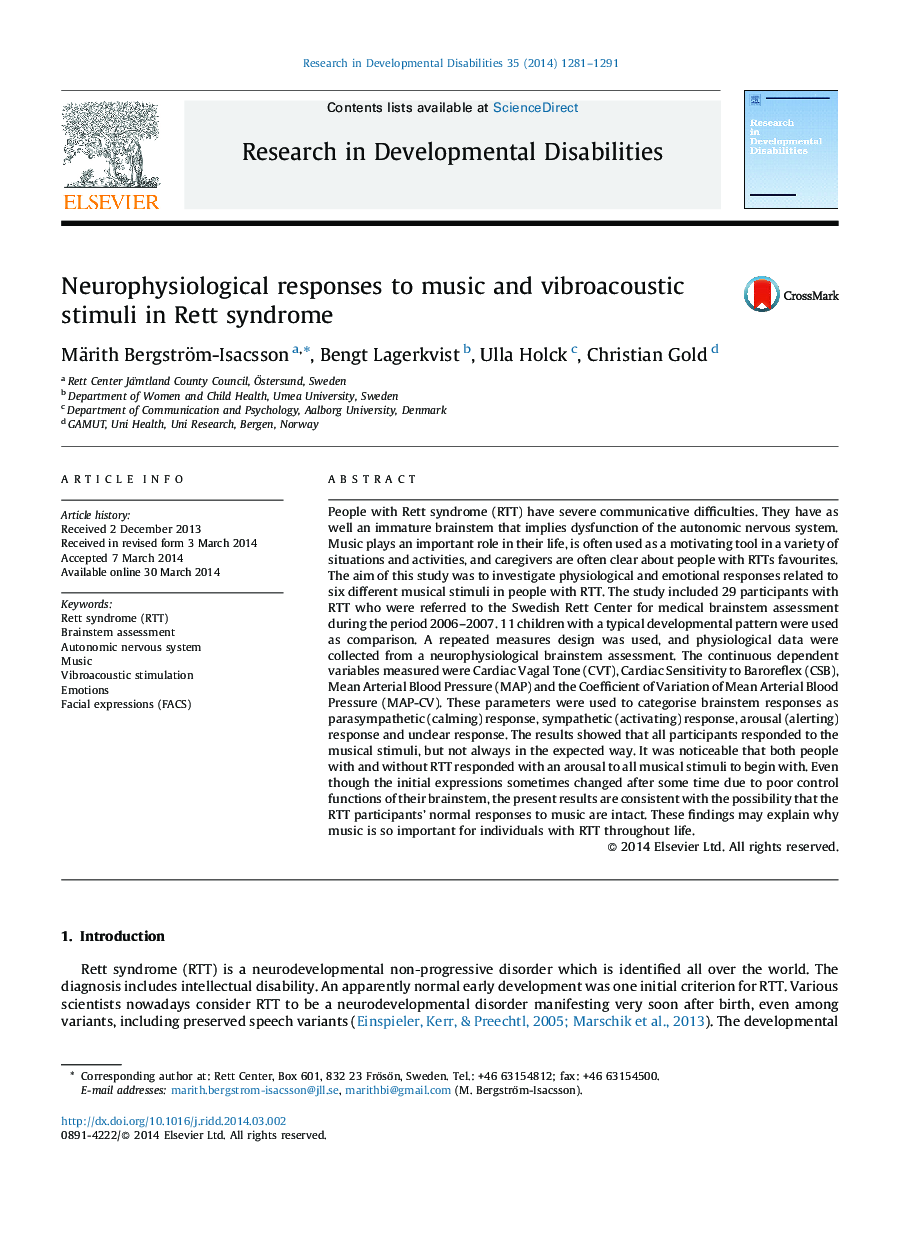| کد مقاله | کد نشریه | سال انتشار | مقاله انگلیسی | نسخه تمام متن |
|---|---|---|---|---|
| 371284 | 621908 | 2014 | 11 صفحه PDF | دانلود رایگان |

• Physiological and emotional output initiated by music in people with Rett syndrome.
• Neurophysiological brainstem assessment combined with Facial Action Coding System.
• It is easy to misinterpret facial expressions in people with Rett syndrome.
• Initial expressions sometimes change after some time due to brainstem immaturity.
• The part of the brain which receives and processes music may remain intact.
People with Rett syndrome (RTT) have severe communicative difficulties. They have as well an immature brainstem that implies dysfunction of the autonomic nervous system. Music plays an important role in their life, is often used as a motivating tool in a variety of situations and activities, and caregivers are often clear about people with RTTs favourites. The aim of this study was to investigate physiological and emotional responses related to six different musical stimuli in people with RTT. The study included 29 participants with RTT who were referred to the Swedish Rett Center for medical brainstem assessment during the period 2006–2007. 11 children with a typical developmental pattern were used as comparison. A repeated measures design was used, and physiological data were collected from a neurophysiological brainstem assessment. The continuous dependent variables measured were Cardiac Vagal Tone (CVT), Cardiac Sensitivity to Baroreflex (CSB), Mean Arterial Blood Pressure (MAP) and the Coefficient of Variation of Mean Arterial Blood Pressure (MAP-CV). These parameters were used to categorise brainstem responses as parasympathetic (calming) response, sympathetic (activating) response, arousal (alerting) response and unclear response. The results showed that all participants responded to the musical stimuli, but not always in the expected way. It was noticeable that both people with and without RTT responded with an arousal to all musical stimuli to begin with. Even though the initial expressions sometimes changed after some time due to poor control functions of their brainstem, the present results are consistent with the possibility that the RTT participants’ normal responses to music are intact. These findings may explain why music is so important for individuals with RTT throughout life.
Journal: Research in Developmental Disabilities - Volume 35, Issue 6, June 2014, Pages 1281–1291